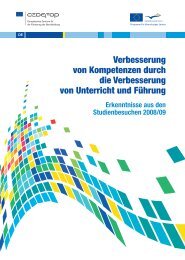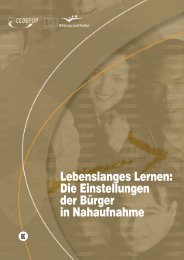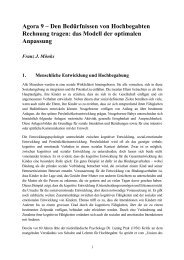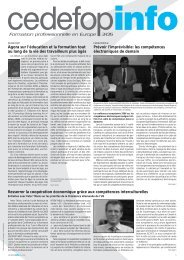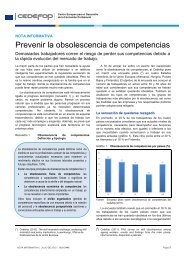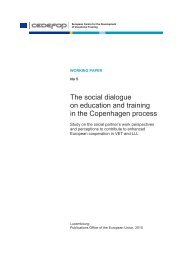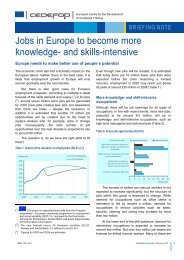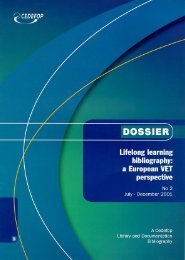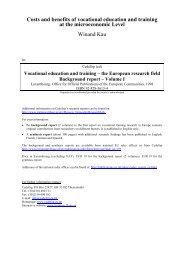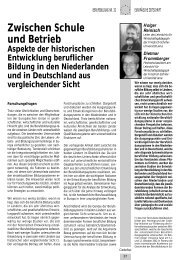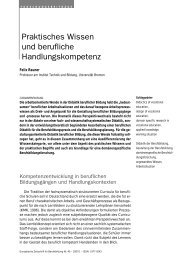Full text (pdf) - Cedefop - Europa
Full text (pdf) - Cedefop - Europa
Full text (pdf) - Cedefop - Europa
You also want an ePaper? Increase the reach of your titles
YUMPU automatically turns print PDFs into web optimized ePapers that Google loves.
190<br />
European journal of vocational training<br />
No 42/43 – 2007/3 2008/1<br />
ing effort expended abroad by the student is transferred and integrated into<br />
the study programme at home;<br />
in ECVET, the learner must have passed the examination abroad or possess<br />
evidence of the additional learning outcomes acquired. The ‘learning<br />
outcomes’ acquired by the learner abroad are what is transferred under<br />
ECVET. This likewise occurs in the con<strong>text</strong> of international mobility agreements;<br />
accumulation is a new and as yet incomplete development in the case of<br />
ECTS, which is ‘developing into an accumulation system to be implemented<br />
at institutional, regional, national and European level’ (European Commission,<br />
2004, p. 1);<br />
accumulation is regarded as an important aspect of ECVET from the outset:<br />
learning outcomes are accumulated, and this accumulation takes place<br />
with a view to the learner’s acquisition of a particular qualification. That qualification<br />
is normally awarded in the learner’s country of origin.<br />
According to the ‘Trends V’ report of the European University Association<br />
(EUA), 75 % of the 908 universities surveyed, which had implemented ECTS,<br />
stated that they used ECTS as a transfer instrument; 66 % used ECTS as an<br />
accumulation instrument (Purser, Crosier, 2007b). The change in the function<br />
of credit systems from transfer alone to accumulation, or from an inputled<br />
approach (in the sense of student workload or learning effort) to an approach<br />
driven by learning outcomes, corresponds to the concept of lifelong<br />
learning and the new notion of learning and working phases in individual biographies.<br />
In this sense there is a need for procedures and rules on the accreditation<br />
and validation of learning outcomes between different components<br />
of education systems (higher education; initial, further and continuing vocational<br />
training) and between different modes of learning. The consideration<br />
of learning outcomes in connection with credit systems offers an opportunity<br />
to validate learning outcomes acquired formally, non-formally and informally<br />
for VET or university study programmes, thereby facilitating permeability<br />
and progression between educational systems.




